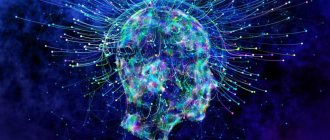Structure of an act of will
An act of will may have a different structure, depending on the number of components, and the duration of the stages of its implementation. Volitional actions can be simple and complex.
Simple volitional actions include those in which a person, without hesitation, goes towards the intended goal, that is, the incentive to action directly turns into the action itself.
In a complex act of will, at least four phases can be distinguished:
- The first phase is the emergence of motivation and preliminary goal setting.
- The second phase is the discussion and struggle of motives.
- The third phase is decision making.
- The fourth phase is the execution of the decision.
Let us characterize each phase of the volitional act.
The first phase characterizes the beginning of a volitional act. An act of will begins with the emergence of an impulse, which is expressed in the desire to do something.
As the goal is realized, this desire turns into a desire, to which is added the installation for its implementation. If the orientation towards realizing the goal has not been formed, then the act of will may end there before it has even begun. Thus, for the emergence of a volitional act, the emergence of motives and their transformation into goals is necessary.
The second phase of the volitional act is characterized by the active inclusion of cognitive and mental processes in it. At this stage, the motivational part of the action or deed is formed.
The fact is that the motives that appeared at the first stage in the form of desires may contradict each other. And the individual is forced to analyze these motives, remove the contradictions that exist between them, and make a choice.
The third phase involves accepting one of the possibilities as a solution. However, not all people make decisions quickly; prolonged hesitation is possible while searching for additional facts that will help confirm their decision.
The fourth phase is the execution of this decision and achievement of the goal. Without execution of the decision, the act of will is considered incomplete. Execution of a decision presupposes overcoming external obstacles and objective difficulties of the case itself.
The peculiarity of the course of a volitional act is that the mechanism for its implementation is volitional efforts at all phases. The implementation of an act of will is always associated with a feeling of neuropsychic tension.
The first phase of the volitional act is associated with such qualities as determination, initiative, independence, endurance, which, in turn, are a manifestation of self-determination of the will.
Interesting
Purposefulness is the conscious and active orientation of an individual towards a specific result of activity. Purposefulness is a generalized motivational and volitional property of an individual that determines the content and level of development of other volitional qualities.
There is a distinction between strategic and tactical determination. Strategic determination is the ability of an individual to be guided in all his life activities by certain values, beliefs and ideals.
Tactical purposefulness is associated with an individual’s ability to set clear goals for individual actions and not be distracted from them in the process of execution.
Initiative is the active orientation of a person to perform an action. An act of will begins with initiative. Showing initiative means a volitional effort aimed not only at overcoming one’s own inertia, but also at self-affirmation, giving a volitional act a certain direction.
Initiative is associated with independence.
Independence is a conscious and active attitude of an individual not to be influenced by various factors, to critically evaluate the advice and suggestions of others, to act on the basis of one’s views and beliefs. Independence can only manifest itself with a certain amount of endurance.
Self-control is a conscious and active attitude of an individual to resist factors that impede the achievement of a goal, which manifests itself in self-control and self-control. Endurance is a manifestation of the inhibitory function of the will. It allows you to “slow down” those actions, feelings, thoughts that interfere with the implementation of the intended action.
A person with a developed quality of self-control (a restrained person) will always be able to choose the optimal level of activity that corresponds to the conditions and is justified by specific circumstances.
At all phases, especially at the second and third stages of the volitional act, qualities such as determination and courage are formed.
Decisiveness is a personality trait that manifests itself in her ability to make and implement quick, well-founded and firm decisions. She supports initiative in setting the goal of action.
It is actively implemented in the choice of the dominant motive and the correct action and in the choice of adequate means of achieving the goal. Outwardly, decisiveness manifests itself in the absence of hesitation. Decisiveness does not exclude comprehensive and deep thinking about the goal of action, ways to achieve it, experiencing a complex internal struggle, and a clash of motives.
Decisiveness also manifests itself when implementing a decision. Decisive people are characterized by a rapid transition from the choice of means to the execution of the action itself. Courage is the ability to confront fear and take reasonable risks to achieve your goal. Courage is a prerequisite for the formation of determination.
Interesting
The qualities opposite to decisiveness, from the point of view of volitional regulation, on the one hand, are impulsiveness, understood as haste in making and implementing decisions, when a person acts without thinking about the consequences, under the influence of momentary impulses, choosing the first means or goal that comes to hand.
On the other hand, decisiveness is opposed by indecision, which manifests itself both in doubts, in long hesitations before making a decision, and in inconsistency in putting them into practice.
At the executive stage, the most important volitional qualities are formed - energy and perseverance, as well as organization, discipline and self-control.
Energy is a personality quality associated with the concentration of all its forces to achieve a set goal. However, energy alone is not enough to achieve results. It needs to be connected with persistence.
Perseverance is a personality quality that manifests itself in the ability to mobilize one’s strength for a constant and long-term struggle with difficulties, pursuing one’s goals. Perseverance can develop into poorly controlled will, manifested in stubbornness.
Stubbornness is a personality quality expressed in the unreasonable use of volitional efforts to the detriment of achieving a set goal.
Organization is a personality quality that manifests itself in the ability to intelligently plan and streamline the course of all one’s activities.
Interesting
Discipline is a personality quality that manifests itself in the conscious subordination of one’s behavior to generally accepted norms, established order, and business requirements.
Self-control is a personality quality expressed in the ability to control one’s actions, to subordinate one’s behavior to the solution of consciously set tasks. In the process of solving problems, self-control ensures the regulation of activity on the basis of higher motives, general principles of work, and resists emerging momentary impulses.
When performing one or another volitional action, a person acts consciously and bears responsibility for all its consequences.
Concept
Will is a person’s conscious control of his actions, which help him solve external and internal problems. In psychology, it is believed that this quality is not an isolated property of the human psyche. The structure of a volitional act can be traced in many behavioral reactions. For example, when resisting temptations, when a person moves towards a set goal, denying himself something.
It is volitional action that helps him achieve the result that he has consciously outlined. To do this, the individual performs certain actions, consciously strains mentally and physically in order to make what he wants into reality. Thus, we can safely say that this quality is extremely important; it is what allows a person to carry out any activity.
How did the will come into being?
The structure of the volitional act was improved and developed in the processes of development of society and history. It was necessary for work. A variety of volitional qualities arose when people fought for their existence, exerted strength to survive, restrained themselves in order to become part of society. And the more important the goal a person set for himself, the more effort he put into achieving it, the faster the will as a quality of the psyche improved. Only by being aware of himself and his actions can a person achieve the desired result.
General characteristics of will
Will is a person’s conscious regulation of his behavior and activities, expressed in the ability to overcome internal and external difficulties when performing purposeful actions and deeds.
Aristotle also introduced the concept of will into the system of categories of the science of the soul in order to explain how human behavior is realized in accordance with knowledge, which in itself is devoid of motivating power. Aristotle's will acted as a factor, along with desire, capable of changing the course of behavior: initiating it, stopping it, changing direction and pace.
Will is an important component of the human psyche and is inextricably linked with the motivational sphere of the individual, cognitive and emotional processes. The will ensures the transition from human cognition and experiences to practical activity, to changing reality in connection with needs, intentions, and interests. With the help of will, a person organizes activities and controls his behavior. The main features of the will are:
- conscious purposefulness. To accomplish something, a person must consciously set a goal and mobilize himself to achieve it;
- connection with thinking. A person can achieve something and mobilize himself for this only if he has thought through and planned everything well;
- connection with movements. To realize his goals, a person moves and changes forms of activity.
Most often, a person shows his will in the following typical situations:
1. When it is necessary to make a choice between two or more equally attractive thoughts, goals, and feelings that require opposite actions and are incompatible with each other.
2. When, in spite of everything, it is necessary to purposefully move towards the intended goal.
3. When on the path of a person’s practical activity internal (fear, doubts) or external (objective circumstances) obstacles arise that need to be overcome.
In the mental activity of a lawyer, the will performs a number of functions.
The main function of the will is the conscious regulation by a person of his actions aimed at achieving his goals, both in favorable and unfavorable life situations.
The general regulatory function of the will is specified in the following interrelated functions:
- incentive function - activation of certain motives of behavior, encouraging a person to perform certain activities, perform certain actions aimed at achieving a certain goal related to the satisfaction of a certain need;
- organizing function – organization of mental processes into a system adequate to the purpose of the activity;
- stabilizing function – maintaining activity at the proper level until the goal of the activity is achieved;
- the function of will inhibition is the inhibition of undesirable manifestations of activity, inhibition of motives, drives, desires, behavior options that are not consistent with the main goals of activity at one time or another.
Will is the ability of a person to consciously control himself in activities with difficult to achieve goals. It involves a person regulating his behavior, inhibiting a number of other aspirations and motivations, organizing a chain of various actions in accordance with consciously set goals. Volitional activity consists in the fact that a person exercises power over himself, controls his own involuntary impulses and, if necessary, suppresses them. The manifestation of will is a type of personality activity that is associated with the participation of consciousness. Volitional activity necessarily involves a number of acts: assessment of the current situation; choosing a path for future action; selection of means necessary to achieve the goal, etc.
In a number of cases, volitional activity is associated with making decisions that determine a person’s life path, reveal his public face, and reveal his moral character. Therefore, the whole person is involved in the implementation of such volitional actions as a consciously acting personality. A person’s volitional activity is determined by the formed personality, the nature of his motives and life goals that arise as a result of various influences in the conditions of human life. At the same time, various life circumstances can act as a direct cause of volitional activity.










